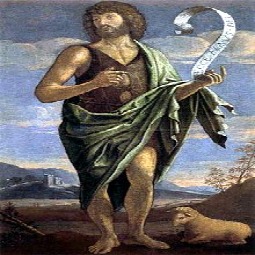‘The Splendor of Truth’ at 20
John Paul II’s Encyclical Spells Out Church’s Moral Theology
Blessed Pope John Paul II’s encyclical Veritatis Splendor (The Splendor of Truth) led to a complete reform of moral theology in the Church, effectively helping to combat an increasing prevalence of false philosophies in Catholic educational institutions.
This is the opinion of two authorities in moral theology in Rome, who shared their reflections with the Register on the 20th anniversary of the landmark encyclical.
Promulgated on Aug. 6, 1993, Veritatis Splendor was the first encyclical to spell out the Church’s fundamental moral teaching. Regarded as one of the most comprehensive and philosophical teachings of moral theology in the Catholic Tradition, it responds to questions of moral theology that had arisen during the period after the Second Vatican Council.
Divided into three chapters, the document focuses on man’s ability to discern good, the existence of evil, the role of human freedom and human conscience, mortal sin and the authority of the magisterium of the Church in the guidance of souls. It explains that moral truth is knowable, the choice of good or evil has a profound effect on one’s relationship with God and that there is no true contradiction between freedom and following the good.
Cardinal Joseph Ratzinger described the encyclical in 2003 as opening "new horizons in moral theology" and said that it tried to "recover the message of Christian morality."
Father Gahl
Since its promulgation, there has been a "total reform of moral theology in the Church and in Church institutions," said Opus Dei Father Robert Gahl, associate professor of ethics at the Pontifical University of the Holy Cross in Rome. "Moral theology was adrift when it was published and had succumbed to the worst forms of utilitarianism and proportionalism."
(Utilitarianism is a theory that contends a best course of action is the one that maximizes utility, usually defined as maximizing happiness and reducing suffering. Proportionalism says that an action is right or wrong depending on the consequences it produces.)
Until its promulgation, moral theology was disconnected from both nature and reason, Father Gahl added. "It wasn’t capable of addressing issues that were being addressed with intellectual vigor by philosophers, nor was it capable of expressing the demands of the Christian faith in terms of the Bible and Scripture," he said.
Veritatis Splendor helped change this, he added, as did the "other components from the magisteriums of Pope John Paul II, Benedict XVI and a little bit by Pope Francis." Now, he said, "more vigorous attention is paid to arguments that secular philosophers are using, and there has been a recovery of the continuity with the richest parts of Catholic Tradition."
Father Gahl said "huge developments" have been made in biblical exegesis, especially on how the New Testament bears upon the moral life. "This has led non-Catholics to now give great attention to what the Church is teaching in areas of moral theology."
Father Flannery
Jesuit Father Kevin Flannery, dean of philosophy at the Pontifical Gregorian University in Rome, agreed that the encyclical helped reverse a growing trend in Catholic institutions to use consequentialist analyses of human actions (a form of utilitarianism).
"Before Veritatis Splendor, it was possible for people in Catholic institutions to teach along those lines and still claim to be within the Church’s Tradition," he said. "But what Veritatis Splendor did was kind of exclude that possibility." Now, he said, professors who take a consequentialist position have to explicitly refute Veritatis Splendor. "Some people do that, but it changes the whole situation," Father Flannery said.
Heavily based on the philosophies developed by St. Thomas Aquinas, the encyclical essentially brings his teachings to today’s world and applies them to modern philosophical debates, he said.
Veritatis Splendor, for instance, insists that certain acts are intrinsically evil and always wrong — an affirmation of Thomist thought and the long-held doctrine of Catholic moral theology that "the ends do not justify the means." But, Father Flannery added, John Paul II "kind of expands the list of what might count as intrinsically evil acts" with the encyclical.
"He goes into some things that are intrinsically evil acts that are not the type of things that Thomas would call that," he said. "I’m not saying there’s a contradiction there, just a different approach to ideas."
Father Gahl agreed, saying that it allowed a "rediscovery" of philosophical appreciation of what is meant by the natural law, moral action, intrinsically evil and good acts and what it means to have a moral character.
Furthermore, the encyclical has had an "indirect effect" on philosophy in general. "It is not as though secular philosophers today are quoting Veritatis Splendor," Father Gahl said. "It’s just that the arguments that are presented in many classrooms of moral theology and in the seminary are much more robust, and they’re capable of engaging secular thought."
He sees its fruits in how the Church now responds to bioethics and how it has indirectly strengthened the Church’s moral teaching more generally with respect to nature, the human person, human dignity and acting in accordance with the beatitudes.
Criticisms
Some critics say the encyclical was too technical and therefore inaccessible to the average Catholic. They also argue it was so forceful that it stifled debate among moral theologians. "It was a bit like a cannon shot down the center of a field, and in the English-speaking world, it’s hard to mention proportionality anymore," said one moral theologian on condition of anonymity.
Other critics claim it doesn’t answer all the fundamental questions regarding moral theology, nor can it necessarily be taken to be consistent with Thomist thought.
But, Father Flannery said, the basis of the encyclical is exceedingly Thomist in nature.
- Keywords:
- Dec. 1-14, 2013














